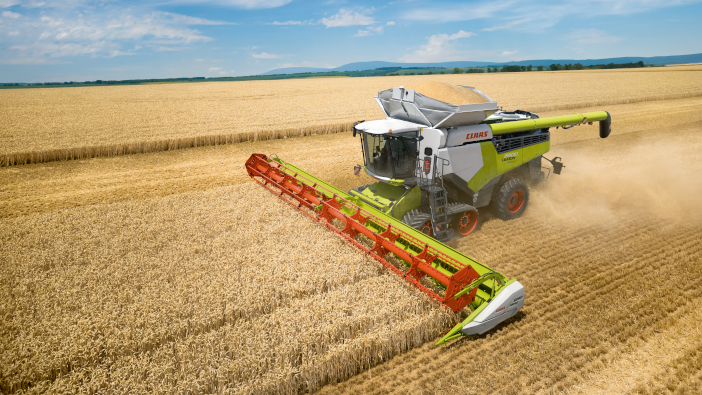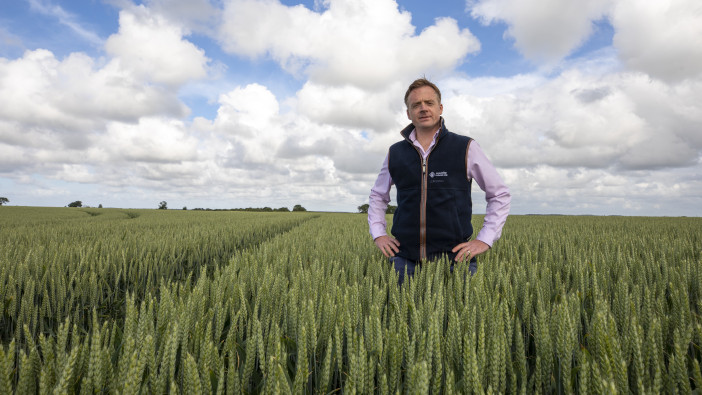Ahead of the NORMAC Cultivations Demonstration on the 8th of September, Malcolm Greves, county chairman of the Norfolk Farm Machinery Club, sat down with host farmer Tom Dye, CEO and director of Albanwise Farming Ltd, to talk about the company and the current trends in farming.
Could you outline briefly the background of Albanwise Farming?
Albanwise Ltd has owned and farmed land in the UK for over 40yrs with much of the land purchase in the 1990s. Albanwise Farming Ltd (AFL) is the subsidiary company set up to recruit and provide staff, machinery and management to carry out the farming operations of the landowner and for third party landowners. The current land area principally lies in Norfolk and Yorkshire.
How many years have you worked for Albanwise Farming?
14 years. I joined in February 2007 as an Assistant Manager on the North Norfolk estate.
During this period what would you say are the biggest changes you have both witnessed and influenced?
Witnessed – climate change, increased financial risk, increases to the cost of equipment, reducing ‘tools in the box’ to manage risk in growing our crops.
Influenced – Galvanising of the team ethics across the whole AFL business, development of young staff with potential across the business, resilient financial performance
Is there any livestock within the business?
Not fully ‘in hand’, we play host to a 4,000 pig bed & breakfast operation in North Yorkshire and have various livestock tenants across the land area. We are keen to integrate livestock across the business to benefit our golden tread of resilient broad acre arable farming, but we recognise our key skills are not in livestock husbandry.
What are the challenges for your farming business of moving from the Basic Payment Scheme (BPS) to the Environmental Land Management Scheme (ELMS)?
Plainly, the reducing revenue with the removal of BPS, which we know is happening. The full opportunities ELMS might bring are not well developed so there are no guarantees on where any lost income might be able to be replaced. It is very unlikely there will be a similar pot to draw from in the future and any potential political support will be competitive and will come with increased cost and therefore less margin.
Do you think Brexit will be good or bad for farming?
Both, completely dependent on which sector you are in. This was the problem with ‘in or out’, it meant different things to different business sectors and no one truly knew the effect. All sectors of our industry need to be market focused to understand where the opportunities lie and so as not to go down blind alleys.

What will be the impact (for Albanwise) of the post-Brexit trade deals that have been widely spoken about?
It is very difficult to plot the actual effect of the Australian, or any future trade deal. The construct of any deal will take several years to take effect. Primarily AFL is a commodity producer, albeit with a focus on domestic markets where the quality of production and miles to market is key. Wider global market dynamics are likely to have a greater impact on our business rather than a specific trade deal. For the industry as a whole, however, our key message to the government must always be ‘market equivalence’, ie if we are going to open our borders to food imports, they must have been produced to the same standard as those asked of the UK farmers and food manufacturers.
With price volatility and the impact of abnormal weather patterns, do you consider sugar beet to still be an important crop for you?
It only remains important if it remains financially viable. It offers very little else to our rotation now, so it must earn its place in the rotation on financial merit alone.
What, in your opinion, is a break-even price/ton for beet and at what yield/ha to achieve a break-even status?
Low £20/t BE at 70t/ha
With the withdrawal of much of the previously available chemistry, do you feel there should be a move to more gene editing to provide crop protection?
The UK has a chance now to let science lead us to the right answers, rather than green lobbyists. DEFRA will need to be strong in this area and accept that some of the answers we are searching for to provide climate change or environmental resilience may come from gene editing.
Without a doubt, the current buzzword in farming is “Regenerative Farming” – are you likely to be an adopter of this form of production?

Regen farming is very fashionable, isn’t it! Many folks are making a second career out of extolling the virtues of their own regen ag system on Twitter! There are of course examples in the last 40yrs where broadacre UK agriculture has not been the friend of soils or the environment, and we must of course turn this tide. Our soils are our number one asset and we must continue to strive to improve their resilience, which means various things. Our forefathers weren’t far off with the principles of the four-course rotation, so incorporating those principles back into our management practices is the key ingredient to ‘regen ag’ as far as I can see.
Another often spoken about phrase is “Carbon Neutral” what is your take on this and what changes are you planning to achieve this?
We need an industry-agreed benchmarkable assessment for carbon footprinting before we truly know how close we are to carbon neutrality. The current measurement tools are imperfect, so we are not there yet. Like all farming businesses, and particularly those forming part of a wider SME, we will have to adopt practices to reduce our carbon footprint either by focusing on reducing emissions or by increased sequestration. In reality, it will be a combination of both and will take some time and change management. The AFL team is up for the challenge though!
Without a doubt, we are entering a phase where some smaller farms will disappear and some larger farms will take on more land – how would you deal with the high demand for additional labour at peak times in that scenario?
It is primarily incumbent upon any business to make itself the best employer it can do. To date, AFL has not had an issue filling a vacancy and we don’t plan to. Staff are your number one operational asset, so they must be looked after, which is not necessarily paying them more than your neighbour. It is important that all staff are engaged in the vision of the business and are treated fairly. Staff families are a key part of this, so the work/life balance is more important than it ever has been to maintain longevity and low staff turnover in the workforce.
With the current high prices being quoted for straw behind the combine, would you see this as an additional income or removal of valuable nutrients?
Removal of nutrients, soil health, organic matter, soil carbon and water retention. Straw only leaves our farms if FYM returns exclusively from that straw.
What is your favourite piece of kit that you have on the farms?
As CEO I really should come up with some clever piece of software that has revolutionised our ability to make decisions, and we do have examples of these. However, you still can’t beat a Claas Lexion 8900 straining in a high yielding crop of wheat!
What is your vision of farming over the next, say 10 years?
Overall there is an exciting period ahead for those who have the skill, energy and passion for successful land management. Food, environmental, energy, access, education, natural capital and carbon farming will all need to be balanced in the future as this is what our western world consumer demands of us. The stackability of these opportunities is very exciting.
How does that compare with your ideals of how you would like it to be?
I’m blessed to work for a progressive and growing company that has always given its employees the chance to grow and develop. This creates challenges that need good people to resolve and any manager worth their salt should be motivated by this environment. Practically, I’d very much like to see broadacre farming and food production in general given greater recognition in the public eye and form the resilient backbone of our future businesses.


